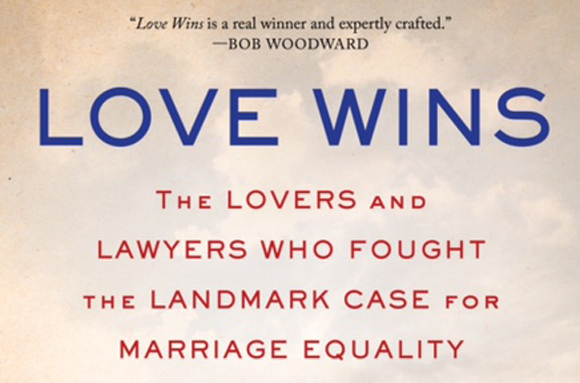ŌĆśWe Got Married Last June ŌĆö but WeŌĆÖve Been Together for 40 Years.ŌĆÖ


A crusty old newspaper editor once warned me that investigative reporting can be one of the toughest jobs in journalism: A grueling pursuit of greed and callousness, the worst in human nature.
IŌĆÖve written about affordable housing developers who squandered millions of public dollars meant for the poor, slumlords who turned off the heat to force families from rent-controlled apartments, and state-run psychiatric hospitals that allowed the mentally ill ŌĆö including children ŌĆö to languish without care or oversight.
But in early 2015, I decided to write a different kind of story.
At an └Ž░─├┼┐¬Į▒Įß╣¹ press conference in Washington, D.C., plaintiffs who were taking the case for same-sex marriage to the U.S. Supreme Court sat shoulder to shoulder in the front of the room. They had come together not to change the world but to protect their families, an overriding, universal need that instantly moved me, both as a journalist and a human being.
Jim Obergefell, the named plaintiff in the case, was fighting the state of Ohio for what seemed like such a simple thing: an accurate death certificate for his late husband, John Arthur.
Two years earlier, Jim and John ŌĆö who was dying from ALS ŌĆö had chartered a medical plane and exchanged vows on an airport tarmac in Maryland, where same-sex marriage was legal. But their home state of Ohio refused to recognize the marriage, which meant that John would be described as single on his death certificate when he died, with no surviving spouse.
Jim sat alongside married same-sex couples whose children had been denied birth certificates that included the names of both parents. The youngest plaintiff in the case, two-year-old Cooper Talmas-Vitale, toddled around the conference room munching on strawberries and ducking under chairs as one of his fathers described the heartbreak of being forced to choose which father to list on CooperŌĆÖs birth certificate and which father to leave off, officially a legal stranger.
That afternoon, listening to a grieving man and a group of distressed parents, the beginnings of a book took shape.
ŌĆ£ŌĆØ is a story about ordinary people who stepped out of their private lives to tell the world that they mattered. It is a story about dynamic, determined civil rights lawyers who fought in courtroom after courtroom, in state after state, until they wound up before the highest court in the land. More than anything, it is a story about the extraordinary power of love.
I had about six months to craft 80,000 words, but writing is always easier when compelling characters fill the pages: the assistant attorney general in Ohio forced to defend the stateŌĆÖs same-sex marriage ban even though she personally believed that same-sex couples should have the right to marry; the sympathetic federal judge who included the words to the folk song, ŌĆ£Happy Adoption Day,ŌĆØ on the last page of an order forcing Ohio to issue birth certificates that listed the names of two parents, not one.
Every plaintiff had wrenching stories to tell. One Kentucky mother once rushed her wheezing newborn to the emergency room but was nearly turned away because she wasnŌĆÖt the ŌĆ£motherŌĆØ listed on the babyŌĆÖs birth certificate.
They had come together not to change the world but to protect their families, an overriding, universal need that instantly moved me, both as a journalist and a human being.
As a journalist, IŌĆÖve met so many children growing up in poverty, in schools that didnŌĆÖt reach or teach them, in communities ill-equipped to help. Yet in Ohio and three other states, committed same-sex couples who had gone to great lengths to marry and have children werenŌĆÖt officially recognized, thrusting families into a desperate state of legal limbo.
Their lawyers spent months working on the case without pay. One Michigan attorney sold her familyŌĆÖs home to help fund the lawsuit. In Ohio, attorney Al Gerhardstein, who had spent more than three decades fighting for the rights of the gay community, willingly gave up a career-making opportunity to argue the case before the Supreme Court when others suggested that a more experienced appellate lawyer take on the job instead.
The local lawyers were joined by attorneys from national advocacy groups, including the └Ž░─├┼┐¬Į▒Įß╣¹ŌĆÖs James Esseks, who had already a hand in winning another monumental gay rights case in 2013 that broadened the federal definition of marriage to include same-sex couples.
Co-authored with Jim Obergefell, ŌĆ£Love WinsŌĆØ hit bookshelves nationwide in mid-June ŌĆö in time for the one-year anniversary of the landmark ruling that legalized same-sex marriage in all 50 states.
At book signings, gay men and women beam when they come up to introduce their spouses, no longer a ŌĆ£partnerŌĆØ or a ŌĆ£significant otherŌĆØ but a ŌĆ£husbandŌĆØ or a ŌĆ£wife.ŌĆØ
ŌĆ£How long have you been married?ŌĆØ I always ask. ŌĆ£Are you newlyweds?ŌĆØ
Again and again, I get some version of this joyful response. ŌĆ£We got married last June ŌĆö but weŌĆÖve been together for 40 years.ŌĆØ
Love, unwavering and absolute.
Debbie Cenziper is a Pulitzer Prize-winning investigative reporter at The Washington Post. ŌĆ£Love Wins: The Lovers and Lawyers Who Fought the Landmark Case for Marriage EqualityŌĆØ (William Morrow, 2016) is available wherever books are sold. Get it .

